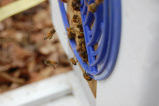|
While recent reports have highlighted Cape Cod and the Islands as a hotspot for Great White sharks, this information is well-known to those familiar with the region, where Great White sightings, encounters, and unfortunately, a recent fatality, have been documented.
The attack on a boogie border, Arthur Medici, occurred at Newcomb Hollow Beach in September of 2018. Arthur was attacked 300 yards off the beach and was rushed to Cape Cod Hospital but succumbed to his injuries. Prior to the Medici attack there have been many close calls all along the beaches of the outer Cape. Why have the sharks flocked to the Cape? Clearly it is because of a massive influx of Grey Seals who have taken over many of the beaches in the area. Great Whites all along the east coast have taken notice and massive amounts of these man-eaters have decided to summer on the Cape. Prior to the seal and great white explosion that last recorded Great White shark fatality was in 1936 in deeper water. Where were the Great Whites before? It's probable that the great white sharks were residing in offshore waters, where they could sustain themselves on the abundant marine life found in deeper waters. Whale carcasses and porpoises discovered further out at sea suggest that these were the sharks' primary food sources. This aligns with the migratory patterns of great white sharks, which are known to travel long distances to reach areas with plentiful prey. Now we have a massive Great White population in our waters and they are learning how to hunt close to shore. Unfortunately, we will be witnessing more shark and human interactions that will not all end with close calls. It's probable that the great white sharks were residing in offshore waters, where they could sustain themselves on the abundant marine life found in deeper waters. Whale carcasses and porpoises discovered further out at sea suggest that these were the sharks' primary food sources. This aligns with the migratory patterns of great white sharks, which are known to travel long distances to reach areas with plentiful prey.
0 Comments
Leave a Reply. |
Details
SEABEE HONEY BLOGAuthorA beekeeper in New Hampshire [email protected] Archives
December 2023
Categories
All
|

 RSS Feed
RSS Feed